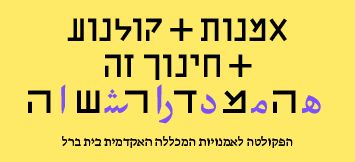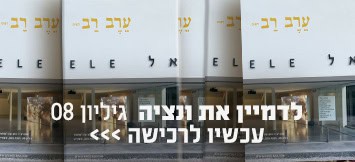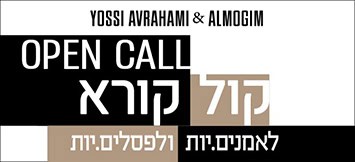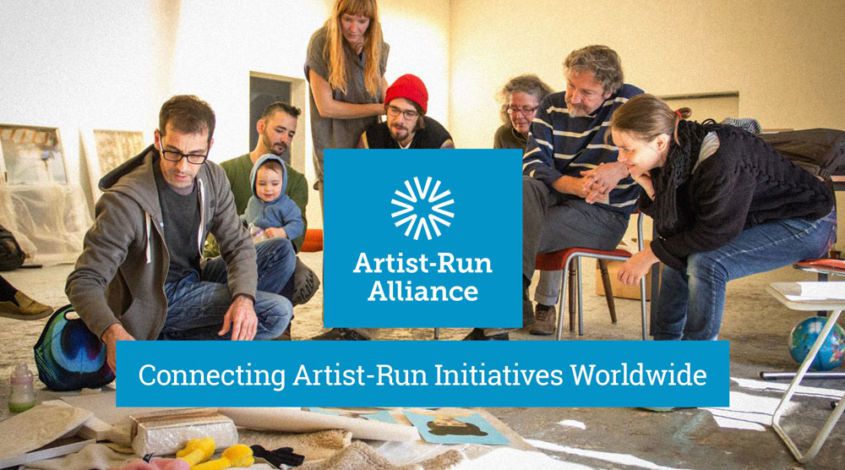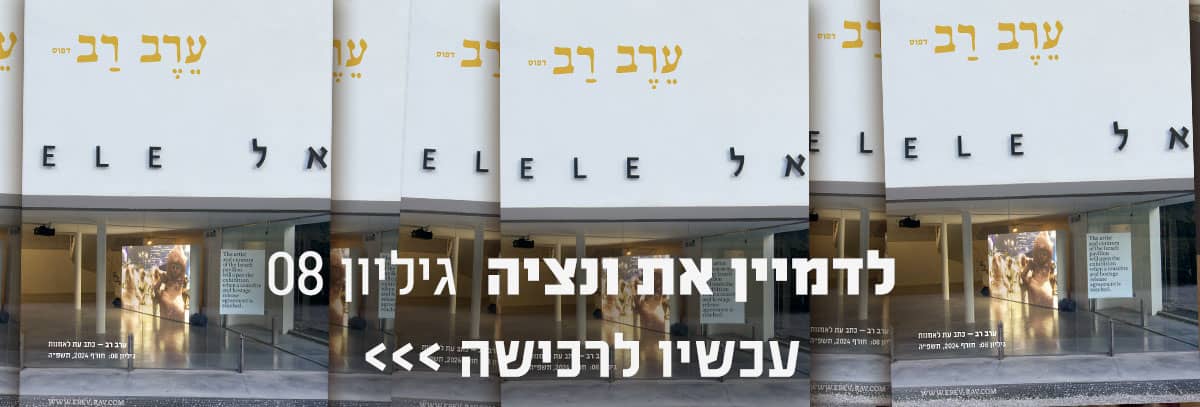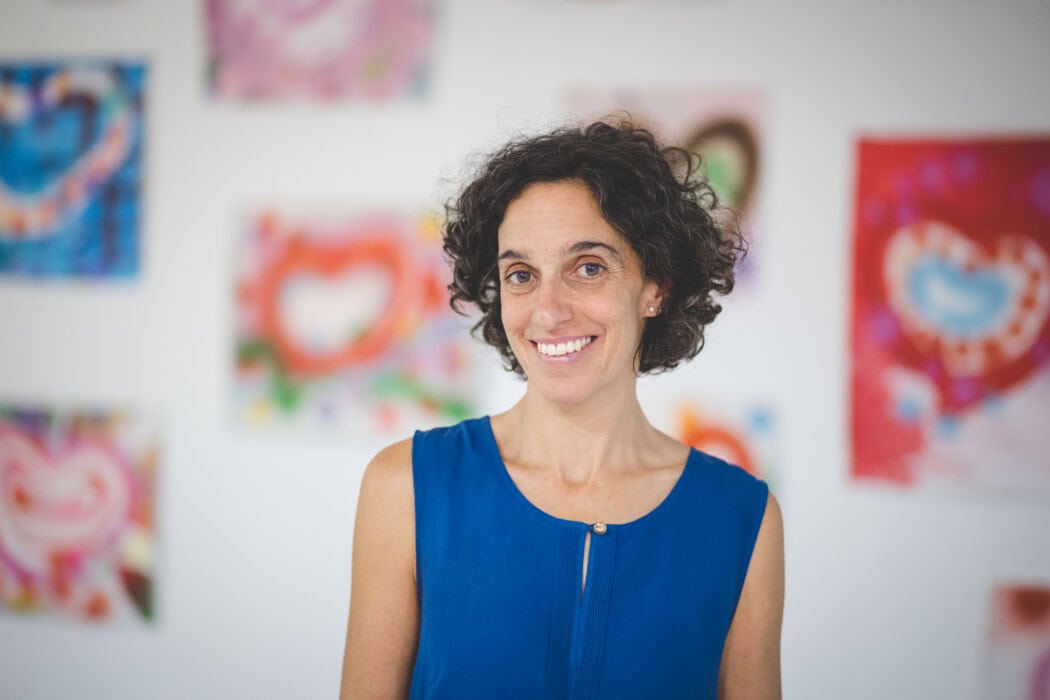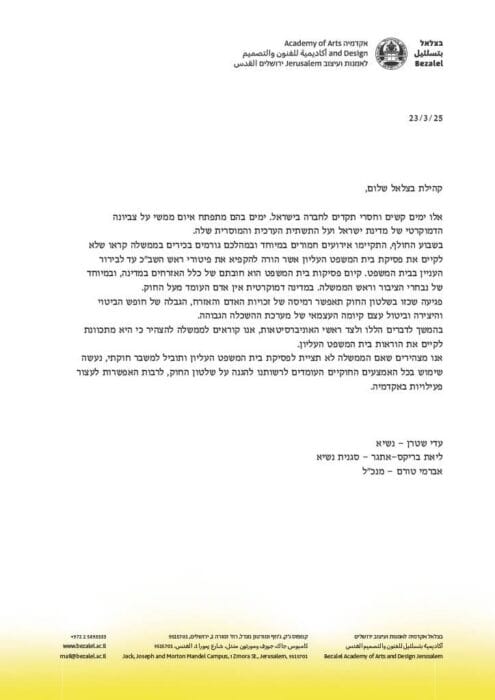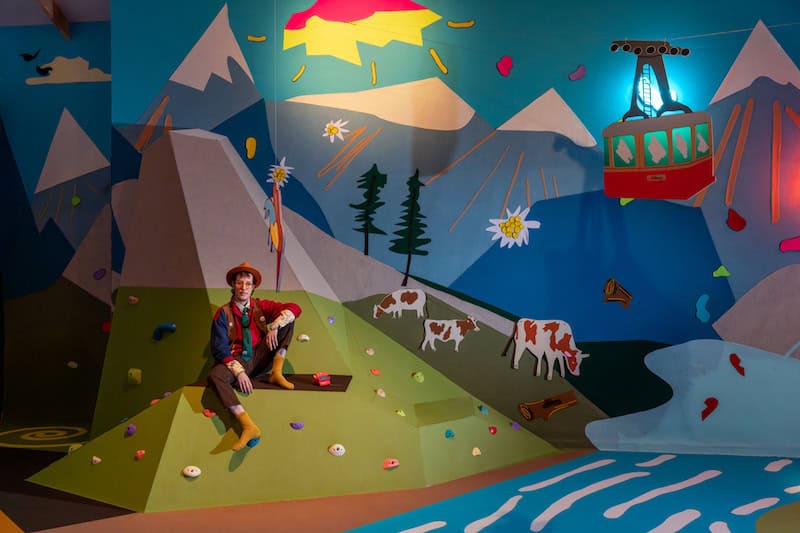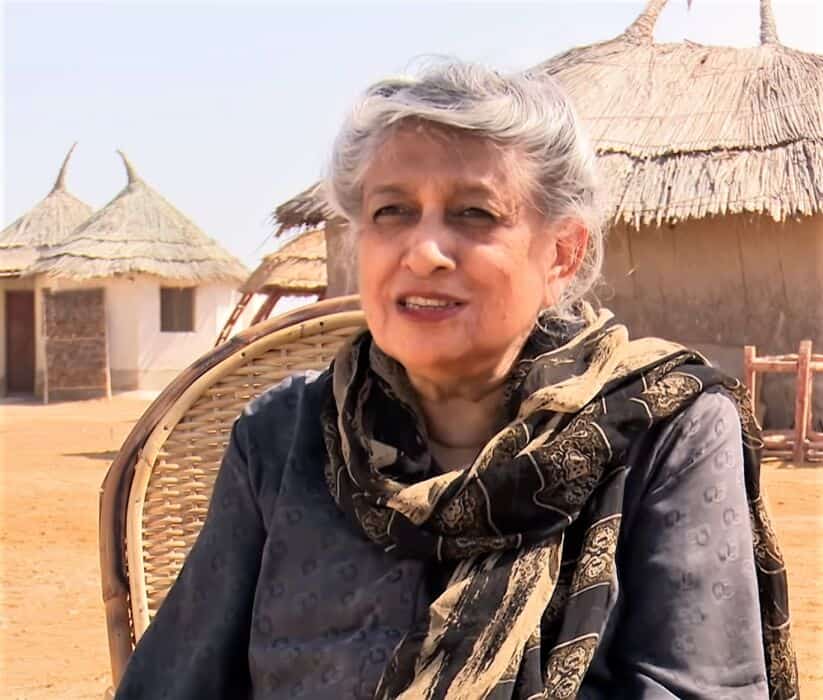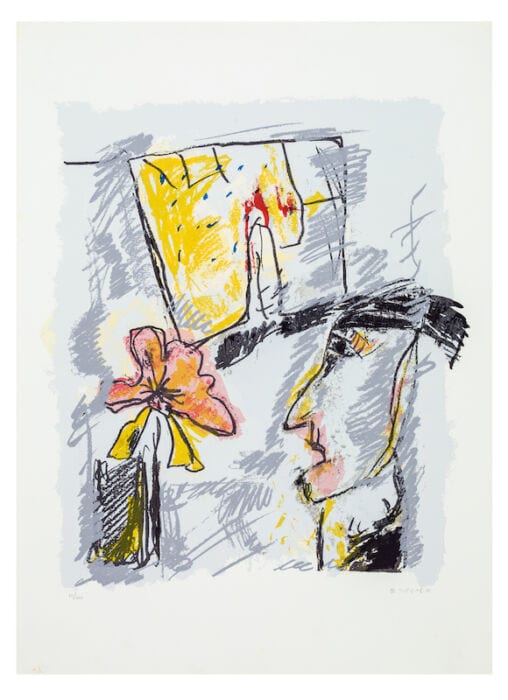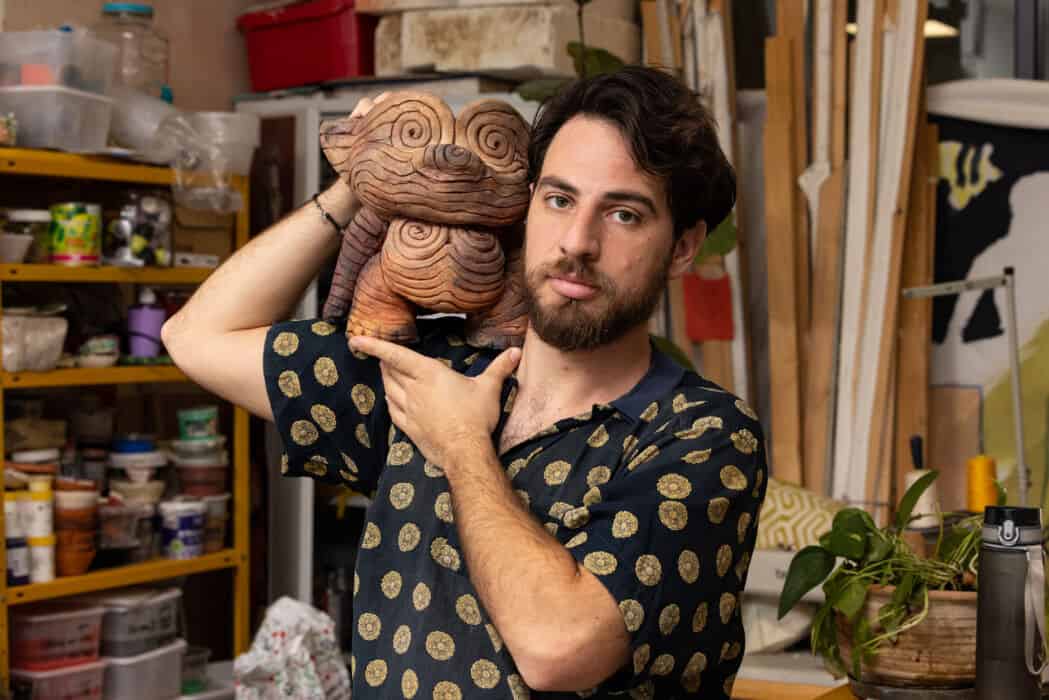The art scene in Israel is as commercial and competitive as in most other countries. Not all artists are suited to the profit-oriented dictates of the art market, and the networking and elitism – who you know and what gallery you show at – that can play a part in art world circles, bring added pressure.
For artists looking for alternative approaches to creating and presenting art one of the more interesting possibilities is joining an artist co-operative, loosely defined as a group of artists who band together to exhibit and collaborate independently, often renting out buildings and transforming them into galleries or artist-run spaces.
The Alfred Institute for Art and Culture, formerly the Alfred Co-operative, was the first artists co-operative in Tel Aviv and has been in existence since 2005. Recently the institute launched a website, the Artists-Run Alliance , to encourage interaction in a global capacity for artist-run initiatives – a catch-all term which includes artist co-operative's, art collectives and independent art galleries.
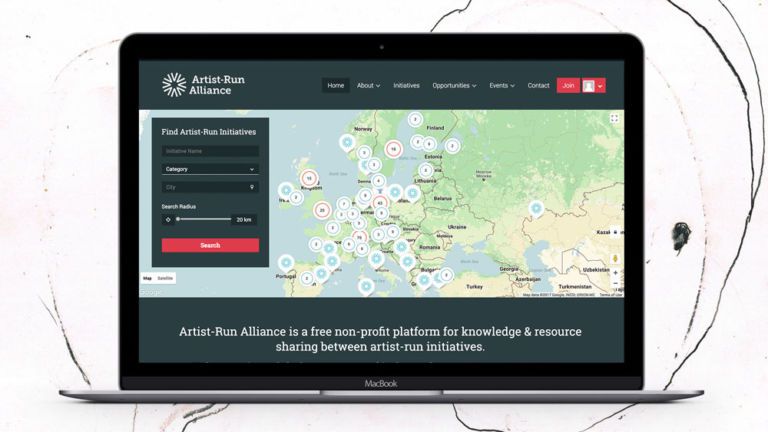
artistrunalliance.org
Speaking with Erev Rav, Gideon Smilansky, one of the Alfred Institute's founding members and the director of the project said, "There are thousands of artist-run initiatives throughout the world, most of which operate on the periphery of the established art scene. Currently the field is very fragmented and it can be difficult to find information about what they are doing, where they are located and who is involved.
The platform's main focus is to enable communication and collaboration between these groups and to present a wide-angled view of what is happening in the independent art world. "
The website serves as a resource platform and is user-generated. After an artist-run initiative becomes a member they are placed on the website's visual map and allocated a space in which to upload their information. A member's profile typically includes their history, art practices and practical information for visitors. Extra features enable members to highlight new exhibitions and activities such as residency programs, open calls and artist talks.
"Essentially, the platform will function as an online, go-to place for both the art world and the general public," said Smilansky. If I go to Berlin next week, a city with a strong contemporary art scene, I will be able to search our platform and see what other co-operatives are organizing.
As an artist and someone who is involved in a co-operative I would like the option to be able to introduce myself to like-minded people who might be open to the possibility of exhibiting in Tel Aviv, or having artists from the Alfred Institute invited to Berlin.
The platform will enable artists and curators to connect online and will enhance the possibility of working together, regardless of where they are based. "
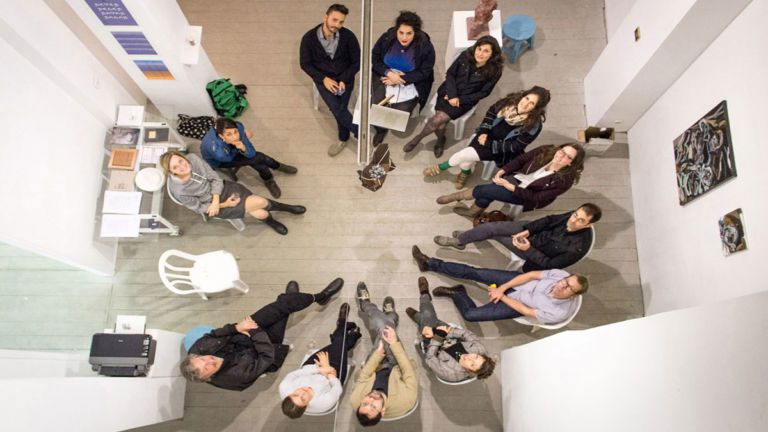
photo: Adi Levy
Collaboration and fostering a sense of community are core ideas that infuse the platform and art co-operative ideology. In its twelve years in existence the Alfred Institute has worked with local and international artists, presented over two hundred exhibitions and built up a reputation as the country's most prominent art co-operative, in the process moving to progressively larger gallery spaces – their new base is a renovated three-story building which houses a gallery, studios for resident artists and hosts regular events.
The upshot of all this activity has resulted in its members gaining experience in running an efficient and well-organized art co-operative. The knowledge they have accumulated is something they intend to share through the Artist-Run Alliance platform.
"The idea for the platform evolved out of our work as a co-operative. To maintain our independence from the commercial art world necessitated a learning process and required us to assume responsibility each step of the way. Over time we had to learn the practicalities of funding issues, managing the gallery and delegating responsibility to group members.
We gave advice and provided a kind of mentorship to other co-operative's, mainly in Israel, but also in Germany. Navigating the process of setting up a co-operative can be complicated and having support makes a difference. We see this as part of our raison d'être and intend to share our knowledge through the platform with newly established co-operative's who want to grow and develop, "said Smilansky.
Art collectives play an exploratory role in the art world, making possible collaborative installations and site-specific projects difficult for artists to explore alone in the studio or in art academies. A strong dynamic can be created by artists working together, building relationships and developing networks that will cater to their specific needs. The website is primarily geared towards the art community, but Smilansky, who has worked on other cultural projects outside of his involvement in the Alfred Institute, is also aware of the role the web can play in engaging and informing the public and promoting art tourism.
"I think the wider public are interested in independently-run art galleries. The feeling is different when you enter a non-profit art space, it is not necessarily about buying or selling an artwork. The exhibitions are usually curated differently. Maybe the presentation is not quite so polished, more informal and so produces a different impression, "he said.
The website is currently in "Beta Mode" and receiving good feedback from the international art community. Over 1000 artist-run initiatives have registered on the platform, from North and South America, Europe, Asia and includes art collectives in Turkey and Iran. Smilansky was particularly pleased when a small gallery located in Izmir, Turkey made contact.
"We like the idea of connecting with co-operative's in the region. When we began the project we were aware the cultural boycott can impact on Israeli artists and wondered whether it would be problematic. It's difficult to know how much of a difference it has made, but as a liberal-minded art collective we are looking to engage with and support artists, rather than to shun or reject them.
The ideology that informs artist-run groups drives everything we do on the platform. As a group of artists working together there is a strong feeling of building on something, of being a part of something bigger than yourself. A supportive and pro-active community is central to everything we do, "he said.
Smilansky is smart, articulate and driven. He is also a true believer in the values that infuse the art collective ethos, both for the art world and for society at large. The Artists-Run Alliance platform is a good idea. It may not change the world, but it's sure to make a difference.

